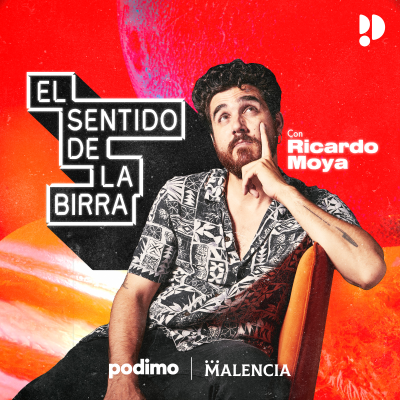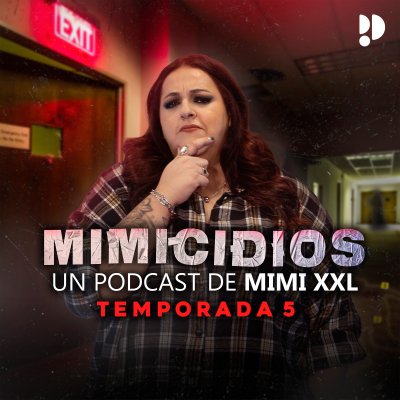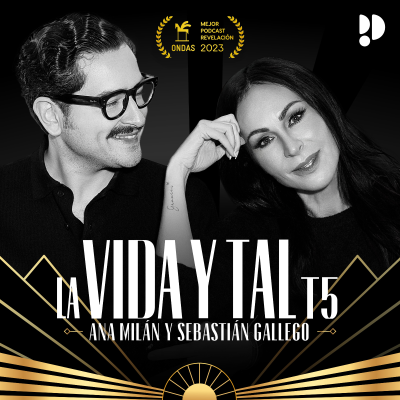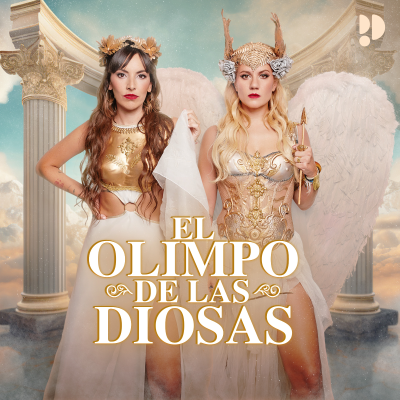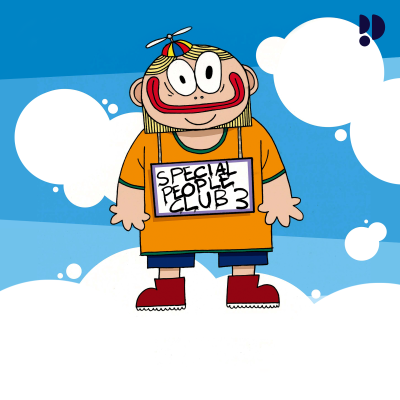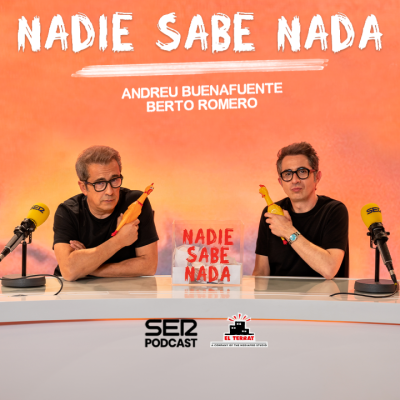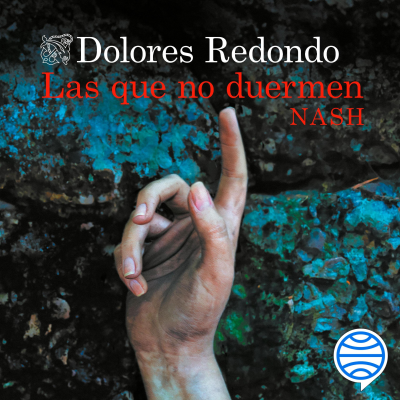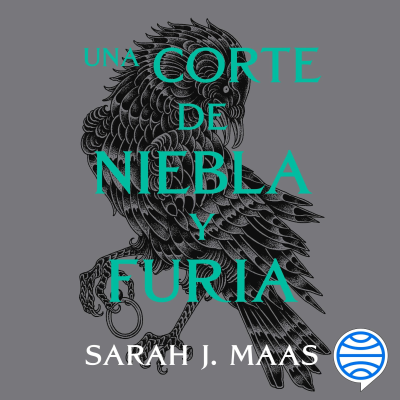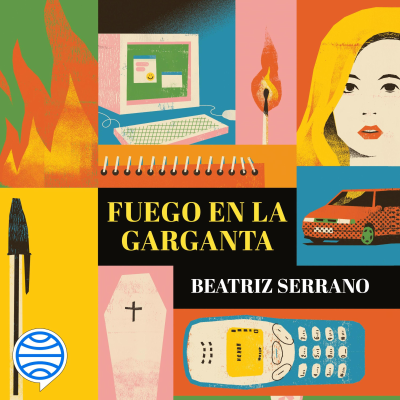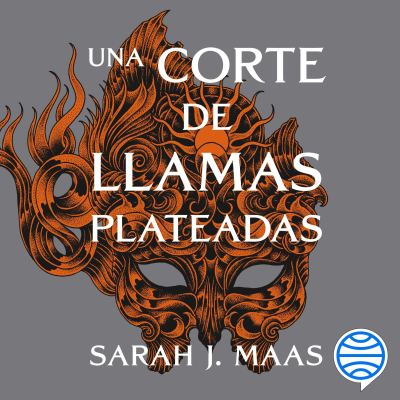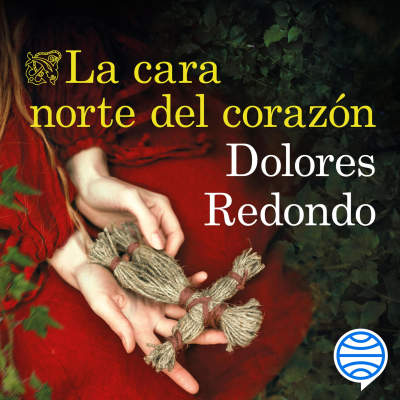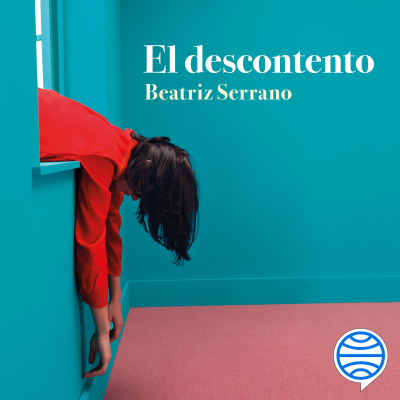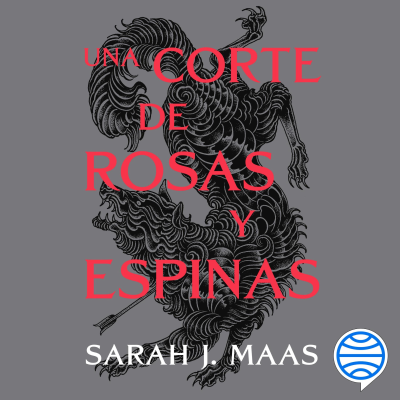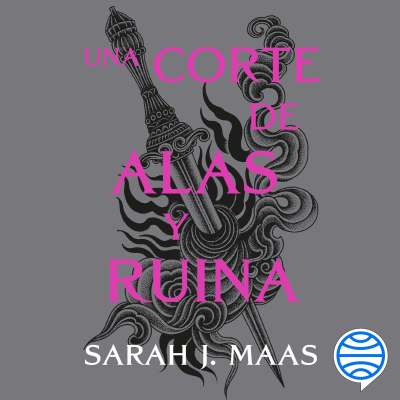Regnfang
Podcast de Regnfang
Regnfang Podcast er dedikeret til at udforske menneskesindet. Gennem samtaler med danske og udenlandske forskere, forfattere, litterater, kunstnere og musikere, ønsker vi at skabe bedre forståelse for, hvad der skaber vores mentale liv, samt hvordan vi selv aktivt kan være med til at forme det. I Regnfang Podcast vil du således møde alt fra kulturhistoriske, neuro-videnskabelige, filosofiske, antropologiske, religiøse og poetiske indsigter om sindet. Desuden kan du stifte bekendtskab med konkrete greb og metoder, man kan anvende til at intervenere på ens egne mentale udfoldelse, såsom meditation, åndedræt, litteratur og musik. Læs mere om Regnfang på regnfang.nu
Disfruta 30 días gratis
4,99 € / mes después de la prueba.Cancela cuando quieras.
Todos los episodios
62 episodiosIn this episode we talk with Fatemeh Ekhtesari and Mehdi Mousavi about poetry as a practise in Iran. We talk about poetry’s strong roots in Iranian culture, and how it’s being used today as a weapon in the fight against the Iranian regime. We talk about censorship in Iran and the poetic movement post-modern Ghazal. We discuss how the regime exercise systematic violence, torture and discrimination against its population, and the ways in which Fatemeh Ekhtesari and Mehdi Mousavi have used their poetry as a political tool in mobilising change. Fatemeh Ekhtesari is a poet, editor, Human rights activist and midwife from Iran. She has published four collections of poetry, two collections of short stories, and two collections of prose. Her poetry is translated into English, German, Norwegian, Swedish and Spanish. Mehdi Mousavi is a poet, editor, Human rights activist and pharmacist from Iran. He has published fourteen collections of poetry, two novels and a book on literature theory. As a teacher Mousavi has led underground poetry schools in hiding from Iranian authorities for many years. In 2015 Ekhtesari and Mousavi fled Iran together. Ekhtesari had been convicted eleven and a half years in prison and ninety-nine whiplashes, Mousavi nine years in prison and ninety-nine lashes. Both sentences were on the grounds of their poetic activism. They came to Limmehammer in 2017 through Icorn as writes in exile. This episode of the podcast was recorded in February 2024, at an event in Gamle Munch in Oslo in front of an audience. The event was supported by Frittord. I hope you enjoy the conversation.
I denne udsendelse taler vi (igen) med den norske poet Stein Versto. Stein Versto debuterede i 1990 med novellesamlingen Ho blei borte i trappene, som han fik Tarjei Vesaas' debutantpris for. Siden har han udgivet flere digtsamlinger og romaner. Med udgangspunkt i Steins sidste digtsamling, Så nær kan du sjå meg, taler vi om forholdet mellem poesi og musik, poesi og tro, samt poesi og magi. Udover at være poet er Stein musiker og velbevandret i den kristne visdomstradition, og har derfor unikke perspektiver på de mystiske, sanselige og bevidsthedsudvidende potentialer poesien tilbyder os. Udsendelsen blev optaget under litteraturfestivalen Bøker i Bø foran et veloplagt publikum. Denne podcast begynder ved at Stein Versto læser højt af sin poesi, derefter går udsendelsen over til selve interviewet og afsluttes med mere digtoplæsning. Det var utroligt meningsfuldt for mig at interviewe Stein Versto, og jeg håber at I vil finde inspiration i hans univers. God fornøjelse
In this episode, you will meet Alvaro de Ferranti. Alvaro is founder and leader of the Tabula Rasa Retreat, a therapeutic treatment center operating in Portugal, that uses the plant medicine ibogaine as part of wholistic treatments for addiction, mental health issues, and spiritual enhancement. Alvaro has been working therapeutically with iboga and ibogaine since 2016, and at Tabula Rasa he has received and treated more than 300 people. The broad application of this plant medicine is reflected in the stories of these people, who have come to Tabula Rasa to manage issues as varied as opioid-addiction, stimulant-addiction, PTSD, behavioral addiction, depression, eating disorder, anxiety, and spiritual disconnection. Ibogaine is one of the main alkaloids in the tabernanthe iboga plant, that grows in and around the rainforest of Gabon. The plant and its alkaloid are currently receiving increased attention among researchers and therapists, mainly because of its presuming potential to treat substance dependence. However, significant risks are also associated with iboga and ibogaine, and work is still needed to assess the efficacy and safety profile of this plant medicine. In the podcast, Alvaro and I touch briefly on the fascinating journey of the iboga plant from its roots in Gabon where it has been and is still used for healing and initiation as part of the spiritual tradition called Bwiti, and into its use in addiction treatment and therapies at both official centers and at underground facilities all around the world. We then turn to the topic of how iboga can heal various issues and help people “dissolve to resolve”. Alvaro describes the treatment protocol and the crucial safety measures taken at Tabula Rasa. We talk about the significance of trust, respect, and intentionality when working with iboga, the importance of having a social support structure before and after treatment, and some common psychological, physical, and emotional effects of a flood dose of ibogaine among their clients. Finally, we discuss the challenges and potentials around implementing ibogaine in more traditional psychiatry. The podcast is recorded at Tabula Rasa’s serene farm in Portugal, where I had the pleasure to spend some months during my doctoral research in order to follow, take part in, and learn from their work. We hope you enjoy the conversation! Links: Tabula Rasa Retreat [https://www.tabularasaretreat.com/]
Tanya Luhrmann is Albert Ray Lang Professor of Anthropology at Stanford University, with a courtesy appointment in Psychology, and she is an elected member of the American Philosophical Society. Her work focuses on the edge of experience: on voices, visions, the world of the supernatural and the world of psychosis. She has conducted ethnographic work among groups such as evangelic Christians, American Santerians, Zoroastrians in India, magicians in England, and people hearing voices across cultural contexts. Apart from being the author of lots of academic articles and opinion pieces in the New York Times, her award-winning books include ‘Persuasions of the Witch’s Craft’, ‘Of Two Minds’, ‘When God talks Back’, and ‘How God Becomes Real’. In this podcast we talk with Tanya about how people make God and Spirits real through various forms of practice and ideas. Tanya shares stories of world- and self-transformation from her fieldwork among magicians in England and evangelic Christians in the United States and unfolds some of the factors influencing such changes. We talk about the world-building effects of prayer, and how faith changes the person of faith. Finally, Tanya describes how cultural theories of mind also have an impact on the manifestation of anomalous, sensory experiences across contexts. The episode is part of Regnfang’s series of co-publications of the Anthropology on Air [https://www.uib.no/en/antro/161105/anthropology-air] podcast. A podcast created and published in collaboration with the Department of Social Anthropology at the University of Bergen. The podcast was recorded in early December 2023, when Tanya was in Bergen to be a panellist of the annual Holberg Debate [https://holbergprize.org/en/2023-holberg-debate-does-consciousness-extend-beyond-brains]. Resources: Academic Profile: https://anthropology.stanford.edu/people/tanya-marie-luhrmann [https://anthropology.stanford.edu/people/tanya-marie-luhrmann] Personal website: https://www.tanyaluhrmann.com [https://www.tanyaluhrmann.com/] - When God talks Back [https://www.penguinrandomhouse.com/books/104442/when-god-talks-back-by-t-m-luhrmann/]: Understanding the American Evangelical Relationship with God (2012) - Of Two Minds [https://www.penguinrandomhouse.com/books/104443/of-two-minds-by-t-m-luhrmann/]: An anthropologist looks at American Psychiatry (2001) - Persuasions of the Witch’s Craft [https://anthropology.stanford.edu/publications/persuasions-witchs-craft-ritual-magic-contemporary-england]: Ritual Magic in Contemporary England (1989) - How God Becomes Real [https://press.princeton.edu/books/hardcover/9780691164465/how-god-becomes-real]: Kindling the Presence of Invisible Others (2020) - Special issue: ‘Mind and Spirit: a Comparative Theory’ [https://rai.onlinelibrary.wiley.com/toc/14679655/2020/26/S1] (2020) - Article mentioned: ‘Sensing the presence of gods and spirits across cultures and faiths [https://www.pnas.org/doi/full/10.1073/pnas.2016649118]’ (2021) Host and production: Sidsel Marie Music: Victor Lange
In this episode, you will meet professor at the University of Oxford, Harvey Whitehouse. Harvey is the director of the Centre for the Study of Social Cohesion [https://cssc.web.ox.ac.uk/home], he is Statutory Chair of Social Anthropology at the University of Oxford, and a Professorial Fellow of Magdalen College. Harvey has worked extensively with rituals since his first long-term fieldwork in Papua New Guinea in 1980s. His list of publications includes myriads of interdisciplinary contributions, articles, and edited volumes apart from books, with the most recent being ‘The Ritual [https://www.anthro.ox.ac.uk/sites/default/files/anthro/documents/media/whitehouse_-_the_ritual_animal.pdf] Animal’ (from 2021). Currently, Harvey is testing and developing his theory of modes of religiosity which proposes that the frequency, transmission form and emotionality of rituals influences the scale and structure of social organisation. In recent years, his research has expanded beyond religion to examine all kinds of ritual behaviour globally and their role in binding groups together whether being in the context of football, war, or ex-convicts. Apart from that, Harvey has been occupied with questions on the evolution of social complexity, something which is also explored in his forthcoming book ‘Inheritance: the evolutionary origins of the modern world [https://www.penguin.co.uk/authors/291933/harvey-whitehouse?tab=penguin-books]’ that will be published in June 2024. In this podcast, we talk with Harvey about what characterises rituals, what kinds of social effects they can produce, and how they have developed throughout history and influenced social organisation. Harvey explains the modes of religiosity theory and we discuss how it can be usefully applied in relation to conflict and contexts as diverse as football fandom, violent extremism, and the environmental crisis. Finally, Harvey shares his vision of an anthropology that reaches beyond interpretive exclusivism and disciplinary silos when trying to understand cultural and social systems. The episode is part of Regnfang’s series of co-publications of the Anthropology on Air [https://www.uib.no/en/antro/161105/anthropology-air] podcast. A podcast created and published in collaboration with the Department of Social Anthropology at the University of Bergen. The podcast was recorded in November 2023, when Harvey visited Bergen to give the yearly Barth Memorial Lecture. Resources: Academic profile: https://www.anthro.ox.ac.uk/people/professor-harvey-whitehouse [https://www.anthro.ox.ac.uk/people/professor-harvey-whitehouse] Personal website: https://www.harveywhitehouse.com [https://www.harveywhitehouse.com/] Paper mentioned: Rethinking ritual: how rituals made our world and how they could save it [https://rai.onlinelibrary.wiley.com/doi/10.1111/1467-9655.14048] (2023) Books mentioned: The Ritual Animal [https://www.anthro.ox.ac.uk/sites/default/files/anthro/documents/media/whitehouse_-_the_ritual_animal.pdf] (2021), ‘Inheritance: the evolutionary origins of the modern world [https://www.penguin.co.uk/authors/291933/harvey-whitehouse?tab=penguin-books] (forthcoming)
Disfruta 30 días gratis
4,99 € / mes después de la prueba.Cancela cuando quieras.
Podcasts exclusivos
Sin anuncios
Podcast gratuitos
Audiolibros
20 horas / mes
